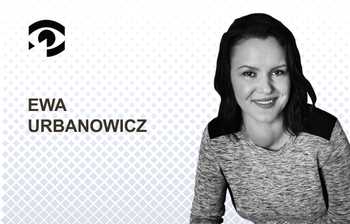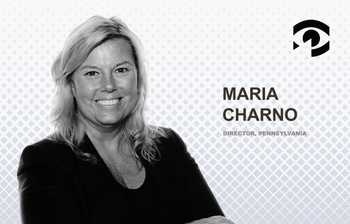Historically speaking, security industry professionals are predominately male and predominately former law enforcement or military. And while it may still hold true, the industry’s demographic is changing. There are now more women in security than ever before.
When Allan Pinkerton hired Kate Warne in the 1850s as a detective, he opened the doors to all women and declared boldly, “Female detectives must be allowed in my agency.” Kate Warne was not only the first female detective in the United States, she was one of the best. She solved seemingly unsolvable cases, protected a president, and was asked to oversee a team of women agents whose cunning efforts dawned a new era for women in security. Today, 30% of Pinkertons are women and embody the spirit of the organization of virtue, vigilance, and excellence.
Most women in security would rather be known as simply security professionals than emphasize the fact that they are women. So, as National Women’s History Month closes, we celebrate these Pinkerton security professionals who are at the forefront of the industry and striving to make the world a better place. We spoke to three Pinkerton directors separately to ask them, “Why security?” While each security professional traveled a unique path to Pinkerton, some of their answers were surprisingly similar and shows how the security industry can support a diversity of talent, skill, and passion.
Ewa Urbanowicz — Corporate Security Solutions Director

Why security?
The field found me. I wasn't actively seeking to be in this industry. My undergraduate degree is in industrial-organizational psychology. After graduation, I was just trying to find a suitable career, and I stumbled upon an FBI career.
Post 911, the FBI transitioned from being an investigative body to becoming an intelligence agency and was actively recruiting people with diverse cultural backgrounds and languages. They weren’t looking for your typical investigator background, which is usually someone with a law degree or accounting degree. As an immigrant, I fell into that pool. And there was a lot of prestige working for a law enforcement agency like the FBI.
My official title was language analyst. I provided cultural-linguistic expertise on a variety of federal cases, mainly Eastern European organized crime. Later, I became a foreign language squad supervisor and managed multi- lingual/cultural staff. This was an administrative position requiring a lot of project management. I was with the Bureau for 12 years, essentially the first half of my career. It was something I was proud of and gave me a really good start.
Why Pinkerton?
The FBI is a very recognizable and strong law enforcement agency. This is how I see Pinkerton in the corporate world. Pinkerton has an interesting legacy. We were the ones who invented a mug shot. We transported the Mona Lisa across the Atlantic. We also had the first female detective.
Pinkerton started as a private detective agency and a has a legacy of being a crime-fighting organization. That’s why I think it was a really good match for me in terms of career growth. I wanted to grow in the field outside of the government and apply what I learned in my Quantico training.
Plus, I continue to be impressed with the caliber of people I work with. There is this notion that when you pursue a corporate security career, it tends to be a second career endeavor, the former being either law enforcement or military — which is for the most part true. Pinkerton seeks talent in people from other industries, because Pinkerton really looks at individuals, not just through a law enforcement military lens. We all come together as Pinkertons from diverse backgrounds and with stories and expertise to share. That exposure to different worlds makes us valuable.
What is it like being a woman in security?
It took me years to arrive at a place where I see being a woman as an asset. It took a long time. In my 20s and 30s, I struggled.
I really grew in this field. I think it's Pinkerton. I've been with the organization for close to five years. I started as an embedded SME in a tactical position running physical security programs and operations for one of our largest clients. Then I transitioned into a director position in Northern California where I was in a trusted risk advisory capacity. In July of last year, I became a security solutions director, where I help strategize client approaches.
Women are skilled communicators and very skilled in problem-solving and diffusing potentially volatile situations, such as workplace violence. An essential component to that is having intuition, a predictive component, because a security mindset requires one to always think ahead, to have plans B and C in place. When I'm engaging a client in a risk assessment conversation, I'm already thinking about their security programs and what a gap analysis will reveal.
I think women can also appeal to a more diverse demographic, for example for executive protection assignments. It can be unsettling when you need to have an executive protection detail right outside of your residence. Women tend to be more sensitive to the family dynamic and know how to warm up the family to this idea of having a security presence. There is still a huge shortage of female protection agents, although there are more cases now where women are being requested for close protection security.
I think being a minority anywhere requires one to often put a lot more effort to be seen and respected by our counterparts.
What is your advice for girls/women who want to break into the field?
There are more women than ever in the security industry. While it statistically remains a male-dominated profession, the industry will only continue to grow given the current geopolitical landscape. There will always be a need for this work, whether it’s in the government or private sector.
My advice is to be open to possibilities and be ready to dispel the outdated perceptions of what physical security work involves. It’s not limited to being a field agent. Security is a broad field. There is interesting work out there. I can even speak just from my own example, where I moved from a tactical position to a strategic position. Find your niche. Identify where you can apply your skills and abilities and create a working environment that is attractive and enables people to be treated equally.
To learn more about her, see Ewa's LinkedIn profile.
Maria Charno — Director, Pennsylvania

Why security?
The world has changed so dramatically and quickly in the past few years. I worked in the travel industry with corporate executives and travel security for 15 years. As you know, the COVID-19 pandemic decimated the travel industry, but security and risk management is a stable and growing industry. For me, it was an easy transfer of skills.
Turn on the news any day of the week: its crime, violence in the workplace, and civil unrest. This compels me to roll up my sleeves and get involved. I want to help to make the world a better place. This is how I can do that, helping Pinkerton’s clients understand their threats and mitigate their risks in today’s world. My signature line is, ‘I’m here to make your job easier.’”
Why Pinkerton?
I've always wanted to be with the best possible organization, and Pinkerton has been around for 170 years. And Allan Pinkerton hired Kate Warne as the first female detective in 1858. He was a trailblazer. I am so proud to be a part of such a rich tapestry of diversity and inclusion that began at our inception.
I love building on the foundation of this amazing legacy. The services we offer elevate Pinkerton with our expertise from a total risk perspective. We can give our clients the solutions they need as they navigate through the risks of today's market. Every organization has a different journey with no two organizations facing the same challenges, however, we have the expertise and benefit to partner with the client. And I’m proud to be part of that.
That brings us to the next question. What is it like being a woman in security? Are there advantages or disadvantages?
I haven't thought about it, to be honest with you. I was the youngest of five children, and I was the only girl. I've always been the only girl and the loudest one in the room. This is no different. I think being the only girl taught me to work very hard to fit in. Nothing was ever handed to me. I had to hustle, but it made me very independent. So, I've never seen it as a negative, only a positive.
This field is tough, and you can’t be a damsel in distress. No one is going to carry you along. Everyone is equal if you’re working hard and carrying your weight. It’s like, “You’re working with us.” I have been so welcomed. It’s perfect.
What is your advice for girls/women who want to break into the field?
Security has been a male-dominated industry, but the world shifted. And this industry is growing and diversifying. There's something for everyone.
At my first event with ASIS (American Society for Industrial Security), I was talking with these gentlemen who each have daughters who want to be involved in security. I was so enamored with that conversation.
I would tell any woman who wants to break into the field to look across the board and see what interests them the most. There’s everything from risk management to physical security, investigations, and cybersecurity. You could work onsite or in the field. As a younger woman, I would try my hand at every aspect.
View Maria's profile on our Find a Risk Advisor page.
Christy Williams — Director, Illinois

Why security?
I landed in the security field after graduating from Western Illinois University with a degree in psychology and an unclear career path. I saw an ad in the paper for a dispatcher at the Peoria Police Department and thought it sounded interesting. I interviewed, got the job, and the rest is history. I took to it like a fish to water, thriving on the fast pace and ability to help people. After about eight years, I moved into an administrative role working with the command staff, which gave me insight into the strategic piece of security. I continued in this role for seven years before transitioning to the private sector.
I chose to transition to the private sector to explore more opportunities. As a civilian in a police department, there are limited positions available due to the departmental structure. The transition was a challenge and outside of my comfort zone, but I am very happy I made the change. At Pinkerton, I have had the opportunity to work in various aspects of operations and now as a client-facing director. I have learned so much at Pinkerton, and I have enjoyed all my experiences. My growth potential at Pinkerton is limitless.
Security is a different world with unique challenges, but it is a world where you can make an impact on lives every day.
Why Pinkerton?
For me, Pinkerton is about the people. Every day I work with incredible, hard-working individuals from various backgrounds and areas of expertise, which I find fascinating. I have yet to have a question that I have not been able to find the answer to by reaching out to a colleague. I am very privileged to be part of such an amazing team.
What is it like being a woman in security? Are there advantages or disadvantages?
I have worked in the law enforcement field (as a civilian) since graduating college and then moved into the private sector. In both the public and private sectors, I have been fortunate to work for people who valued my input, even when my position was not a leadership role. They mentored me and gave me opportunities to prove what I can do.
As women, we are adept at soft skills, such as reading people, building relationships, and the nuances in dialogue and body language. Soft skills are critical in security both in internal interactions and the field.
What is your advice for girls/women who want to break into the field?
First, find where your passion lies. There are so many different options. Do you want to go into security as a police officer, an agent, an analyst, or an investigator? Do you want to be boots on the ground or have more of a managerial role in security? Do you want to focus on risk strategy?
Once you have identified where your passion lies, reach out and find someone who is an expert in the chosen field. Finding a mentor can give you invaluable insight on areas of study, skillsets to hone, what to expect, pros and cons of the specific field, and what to expect as you start your career.
Then I would say just go for it. Don’t let anyone convince you that you shouldn't, you can't, or you're not the right fit. Look at Kate Warne. During a time when women in security were unheard of, she was determined to prove how valuable an asset she could be. She ended up being one of the most effective Pinkerton detectives in the agency. Just because you may not have the same skill sets as someone else doesn't mean that you're not qualified. Sometimes those differences are going to make you stand out and be amazing.
View Christy's profile page.



